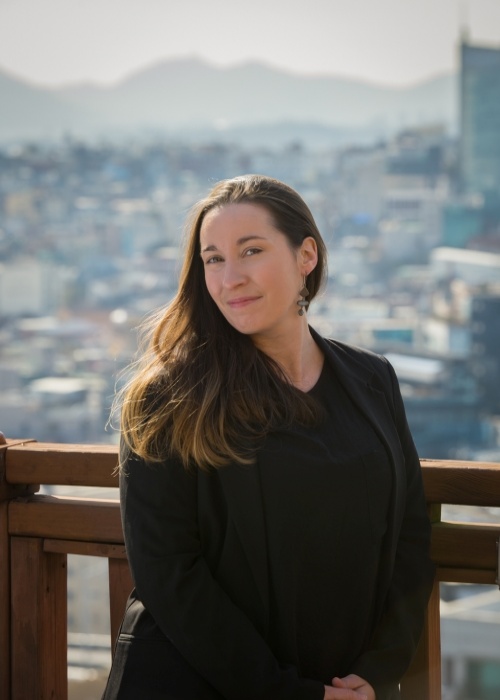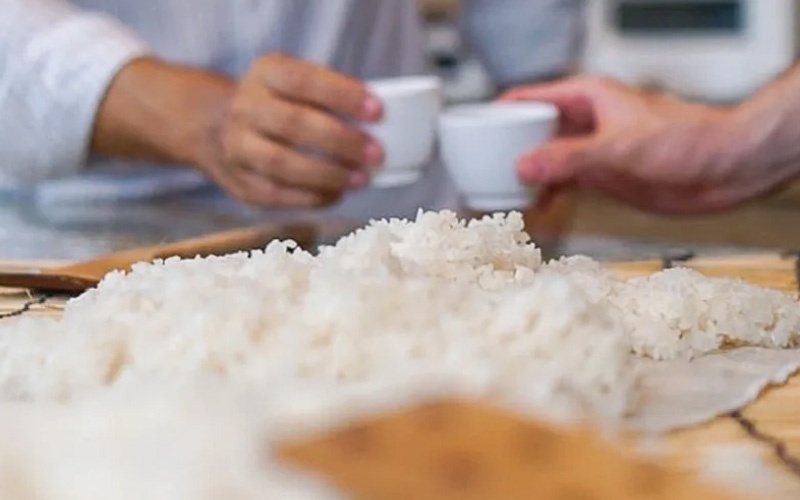-
 Korea.net's 24-hour YouTube channel
Korea.net's 24-hour YouTube channel- NEWS FOCUS
- ABOUT KOREA
- EVENTS
- RESOURCES
- GOVERNMENT
- ABOUT US
- 한국어
- English
- 日本語
- 中文
- العربية
- Español
- Français
- Deutsch
- Pусский
- Tiếng Việt
- Indonesian
By Honorary Reporter Foteini Chatzoudi from Greece
Photos = Julia Mellor
Julia Mellor, the Australian founder of the Sool Company based in Korea and the Netherlands, is the first non-Korean specialist in sool (Korean alcohol).
Since 2012, her passion for Sool led to "Makgeolli Mamas and Papas Korea," a community turned business, earning awards like the Excellence in Agriculture, Food, and Beverage at the Australian Chamber of Commerce Business Awards in 2017, and Dive’s Awards in 2018. As a non-Korean expat, she completed three Korean traditional liquor academies. Her company participates in festivals like Chuncheon Makgeolli Festival and Rustic Wildfest in Spain for spontaneous fermentation.
What captivated Mellor about sool is its fermentation process. "Nowadays, the sool industry is brimming with creativity and self-expression, and witnessing its evolution is truly inspiring," she said. "Whether you love to brew or just enjoy tasting the fruits of the brewing labor, there's always something delightful about Korean alcohol."
The following are excerpts from an email interview with Mellor between Jan. 9 and Feb. 27.

Julia Mellor is the founder of the Sool Company and the first non-Korean sool specialist.
How did you become a sool specialist and launch your company?
The Sool Company began in 2012 as the meetup group Makgeolli Mamas & Papas Korea, evolving from a community of sool enthusiasts. Through study and partnerships with breweries, we grew our knowledge of sool fermentation and culture. Sharing what we learned through classes and events, our passion turned into a business.
What key ingredients are typically used in brewing sool?
Making sool requires three fundamental ingredients: rice, water and nuruk (fermentation starter). Though plenty of other ingredients can be used for infusions or alternate recipes, the traditional core is just those three ingredients.
How does your brewing classes balance traditional and modern techniques?
Our classes focus on providing insight into both traditional and modern techniques, enabling students to explore and experiment with both. The one thing we stress is the use of traditional nuruk, which we believe lies at the true heart of sool brewing and is a central part of our classes from beginner to advanced.
Does the brewing process vary for each type of sool?
Korean brewing centers on an array of rice preparation techniques that create a variety of flavors and textures. By fermenting recipes using these techniques and post-filtering, we get the base alcohol wonju from which makgeolli (milky rice wine), yakju (medicinal liquor) and even traditional soju can be made through distillation. What makes sool fascinating is that the same fermentation process can create so many categories of alcohol.

Shown is the making of makgeolli from rice and nuruk.
What feedback have you gotten about brewing makgeolli and experiencing sool?
One of the most common comments we get from guests who start homebrewing is how they cannot believe how delicious it can be when you make it yourself. Our global community of brewers not only experiment and hone their skills, but also share with others. We run a monthly sool meetup at our brewery in Seoul for homebrewers to share what they work on.
What plans does your company have?
Our mission has always centered on educating and promoting sool to an international audience. I am based in the Netherlands establishing our European base, and we import craft Korean sool for distribution on the Continent, create content and hold events to raise awareness of traditional Korean alcohol. Our brewery and training center in Korea continues to grow and provide memorable sool experiences for tourists and locals. We hope to further develop our tourist services to other breweries throughout Korea.
msjeon22@korea.kr
*This article is written by a Korea.net Honorary Reporter. Our group of Honorary Reporters are from all around the world, and they share with Korea.net their love and passion for all things Korean.
Most popular
- First hearing-impaired K-pop act hopes for 'barrier-free world'
- 'Mad Max' director impressed by 'cinema-literate' Korean viewers
- Romanian presidential couple visits national cemetery
- 'Korean mythology is just as wonderful as Greek and Roman'
- Hit drama 'Beef' wins awards from 3 major Hollywood guilds













